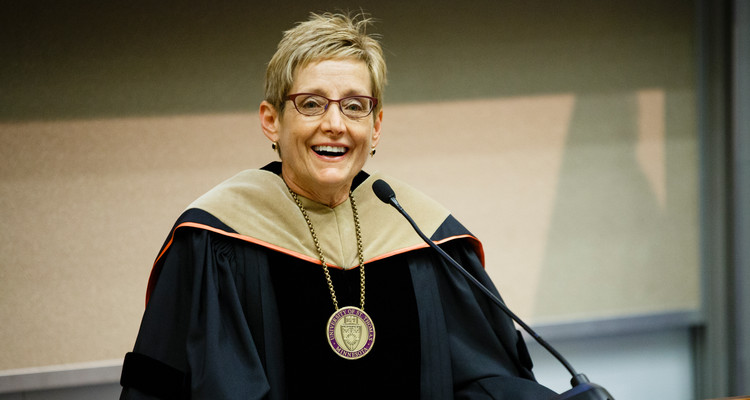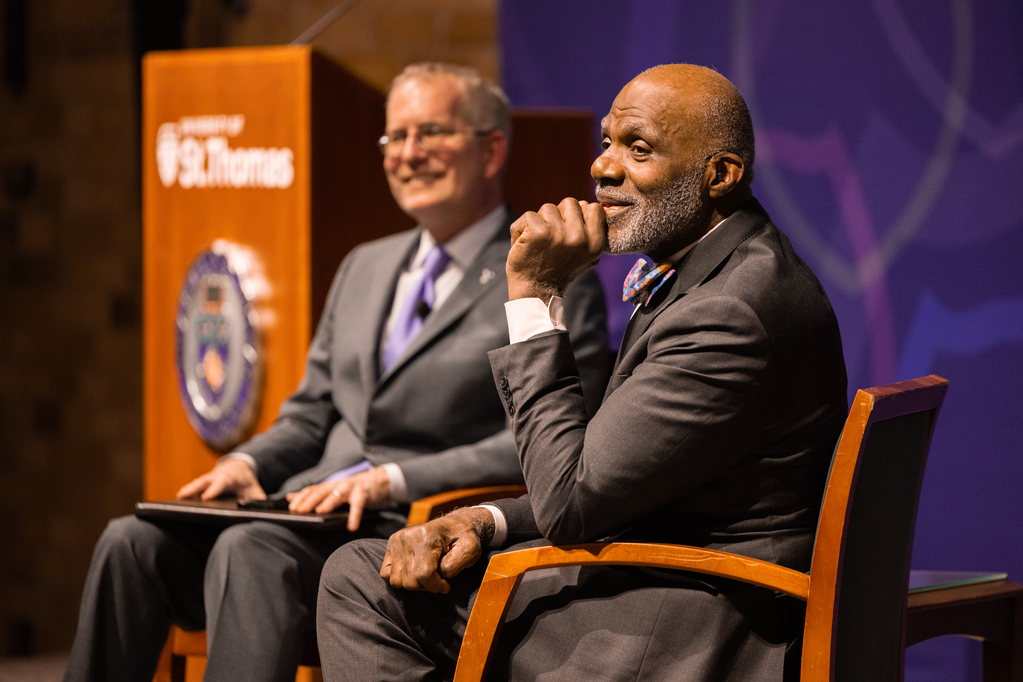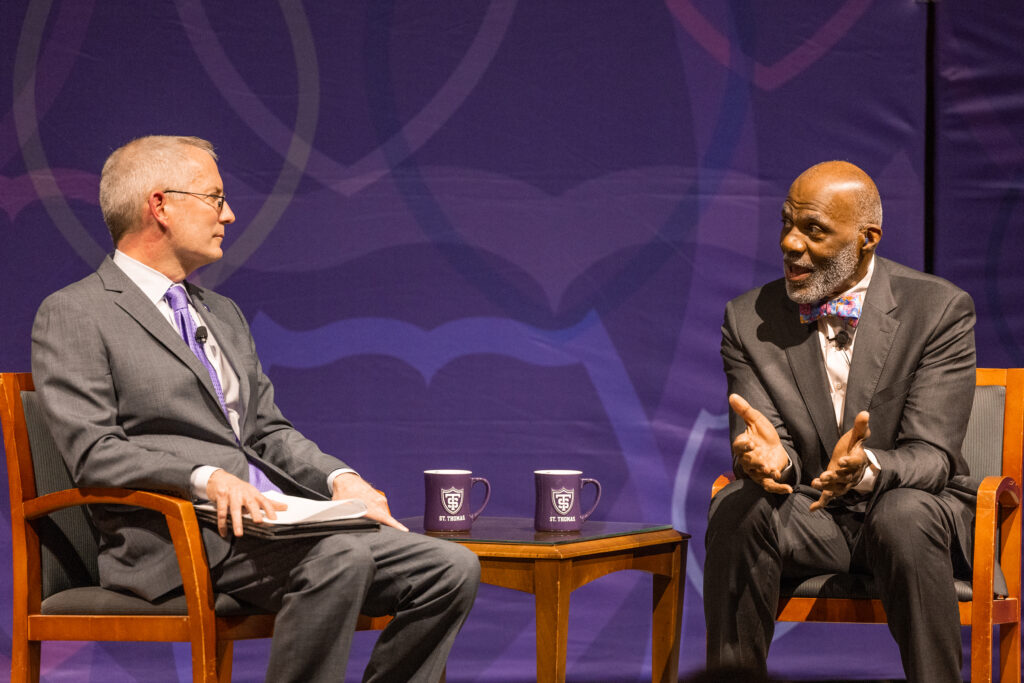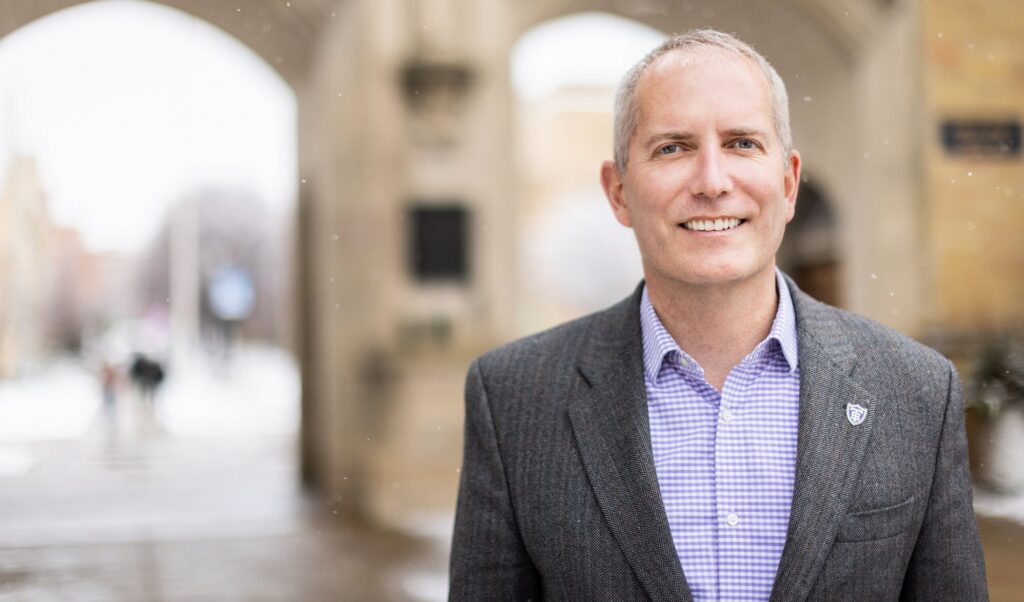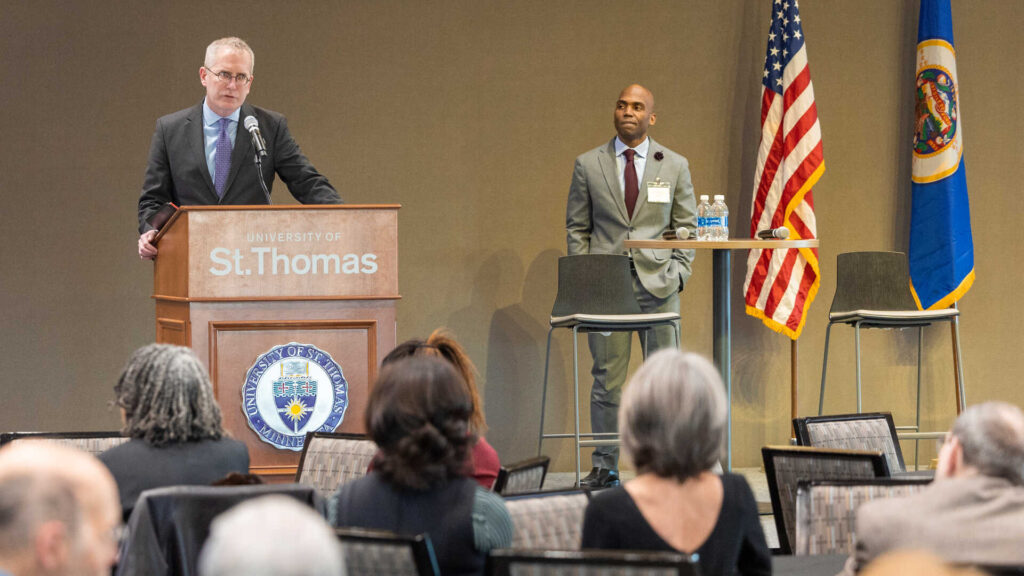President Julie Sullivan Tuesday encouraged the St. Thomas community to join with her to define ways in which the university should live out its mission statement to advance the common good.
Sullivan issued her challenge during the president’s annual academic convocation address, which was held for the first time on the Minneapolis campus (in Schulze Hall Auditorium) and on the 130th anniversary of the opening of St. Thomas.
“What is your concept of advancing the common good?” she asked the audience of mostly faculty during her 27-minute address (watch video here). “How do you prepare and inspire our students to advance the common good? Because that’s what we say we are doing in our mission statement. I invite you, as you start this academic year, to take a few minutes to reflect on it.”
Sullivan spoke about several books she had read over the summer, including The Road to Character by David Brooks. In the book, which has been on the New York Times bestseller list for 20 weeks, “we experience true joy by discovering what life is asking of us and living purposefully,” she said.
It is important to live with a core purpose and a willingness to ask why we exist, Sullivan said. She spoke about the vision of Archbishop John Ireland, founder of St. Thomas Aquinas Seminary, who sought to educate immigrants and “embraced the philosophy of liberal education and a commitment to others.”
That was a tall task for Ireland, with just 62 students and five faculty showing up for classes on Sept. 8, 1885, but he persevered and he succeeded, Sullivan said. More than a century later, she values how the institution that became a college in 1894 and a university in 1990 still “echoes” Ireland’s vision through its mission statement to educate morally responsible leaders who “think critically, act wisely and work skillfully to advance the common good.”
Sullivan traced the meaning of “the common good” from Vatican II in the mid-1960s to the recent words and actions of Pope Francis, based in Catholic social thought principles such as authentic human development, the dignity of all human persons and how we are all part of one human family. She also told of her conversations over the summer with people around campus to discern how they defined the common good: “using our talents to create a new and better world for all people,” “doing well, and doing good,” and having a “love of God and love of neighbor.”
On a practical level, Sullivan touched on important strategic plan components that will receive extra attention this year, including revision of the undergraduate core curriculum, examination of whether to open a two-year college, a new branding initiative and new campus master plans.
“Healthy organizations have good communication habits,” she said, and she promised to be more present in the lives of students, faculty and staff by doing a better job of “listening and sharing.” She and Dr. Richard Plumb, executive vice president and provost, will spend more time on the Minneapolis campus – she one afternoon a week and he every Thursday. They also will have regular faculty lunches and will hold three brown bag luncheons this fall (on the two-year college, the campus master plans and branding).
Healthy organizations also create a culture of good habits, she said. She cited the need to empower faculty, staff and students, to value and respect the work of all, and to continue to work as “One University,” one of five themes in the strategic plan, in order “to act as a unified community to fulfill our vision.”
Sullivan closed her speech with the same words that she used at the conclusion of her 2014 convocation address, recalling again the words of Ireland when he once was asked to address a meeting of American bishops on what the future would be like:
“For as we will it,” Ireland said, “so shall the future be!”
“God bless you,” Sullivan added, “and Godspeed to the University of St. Thomas.”
